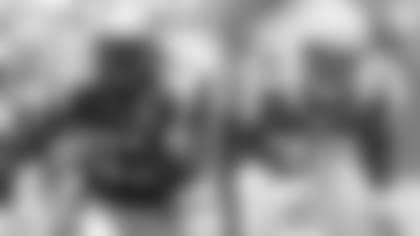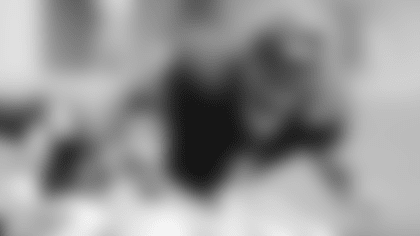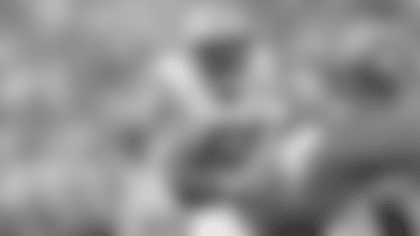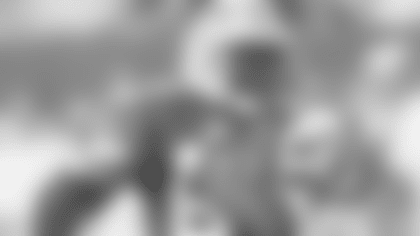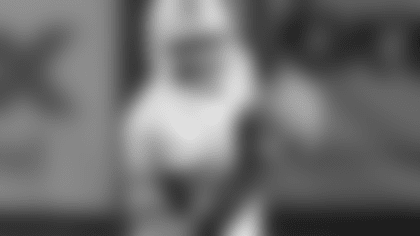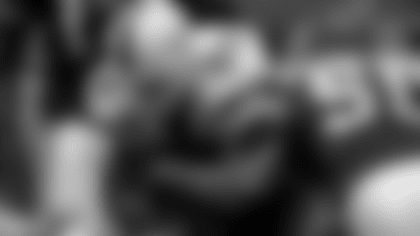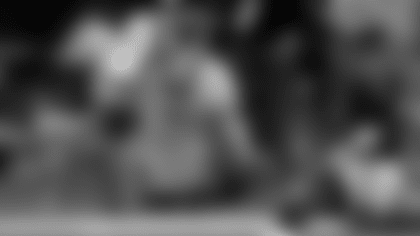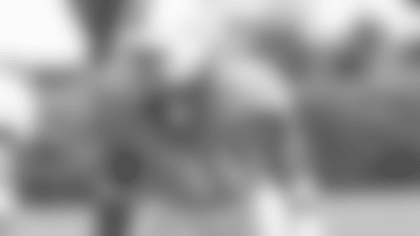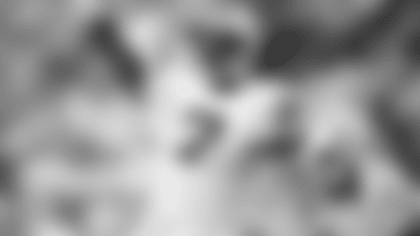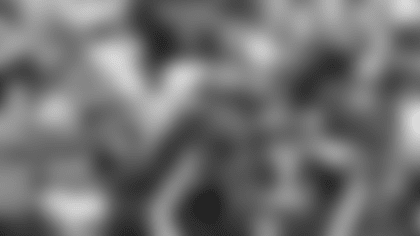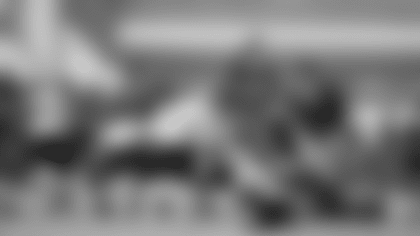It would be naïve to approach this time of year without expecting a couple of Patriots starters to leave New England either voluntarily or with a pink slip. So to panic about any such departures would be irrational.
But that doesn't mean that replacing the lost contributors will be easy either. Chris Slade's release last month sent a reality wave through the old guard on the roster. If Slade, an integral part of the 1996 Super Bowl team, can get his walking papers, so can most anyone else.
Veteran defensive tackle Henry Thomas, after refusing to take a pay cut, also was fired by the club — a victim of age and a $2.7 million salary cap figure deemed too high for a player who should be relegated to situational play at this point in his career.
Thomas, who played his 14th NFL season in 2000, was still an asset to the team. While not the pass-rushing factor he was in the past, he contributed a consistent effort at an acceptable level while providing valuable experience. Thomas may have been more effective if injuries to others didn't force his 36-year-old body into more of a full-time role.
From a talent vs. age perspective, the toughest loss to replace will be that of nose tackle Chad Eaton, who developed into a quality player for the Patriots only to seek riches elsewhere when free agency became an option.
Eaton is a player essentially bred as a Patriot who was brought in on the advice of Bill Belichick back in 1996. He emerged in 1998 into a near Pro Bowl player only to see his play drop off in 1999. He returned to form last year and had an excellent season tying up offensive linemen in the middle of the pack.
The only question surrounding Eaton was his motive. After struggling in 1999, he stepped up in what was his contract year and made no bones about the fact that he was playing for a payday. Sometimes players who take that approach don't offer the same effort after being paid. His $2.5 million average annual salary was apparently too high for the fiscally tight, if not responsible Patriots. One has to wonder if Eaton was a player worth a deviation from the plan.
His loss, combined with Thomas', leaves a definite void in the middle of the Patriots line. Free agency has only delivered 16-year veteran Anthony Pleasant (at press time), who played for Belichick in both Cleveland and New York. His best years came under Belichick, but he is obviously coming to the end of his rope. If defensive tackle is not addressed in free agency soon, look for the Patriots to go in that direction on draft day with a high selection.
No matter the solution, the line will not be filled with familiar names. Injury-prone Brandon Mitchell, the last player from the 1997 draft, won't be re-signed. He doesn't fit into Belichick's two-gap line approach and his health has been an issue since his arrival from Texas A&M. He showed flashes during his time in New England, but never maintained consistency.
Linebacker Tedy Bruschi realizes such turnover is essentially commonplace nowadays. "It's going to be tough to replace them, but it's been done before," Bruschi said. "Everybody is expendable. The top players on our team are expendable. It's the way this game is now and you have to be able to recover from it and move on. We lost two interior defensive linemen and we'll replace them. We have to."
Additionally, fan favorite Larry Whigham also was let go and will be missed on Sundays for his crowd-arousing arrival on the field. Whigham made his reputation as a special teamer, but as he earned veteran status, he essentially stopped accepting that role. He still contributed in that area, but his attitude suffered somewhat after several failed attempts to nail down a regular job in the secondary. He was going to be cut next year anyway because of a huge salary escalation, but got his walking papers a year early to get him off the books. A player like recently signed Larry Izzo, a special teams Pro Bowler himself, should help ease Whigham's loss.
Offensively, free agent fullback Tony Carter won't be brought back after the club signed former 49ers and Browns fullback Marc Edwards. But the real loss on offense is something that was expected, but still monumental.
While 14-year left tackle Bruce Armstrong saw his body prevent him from maintaining his Pro Bowl level, his presence on the left end of the line provided quarterback Drew Bledsoe with some confidence. Armstrong's play declined over the last half of 1999 when he played on a torn anterior cruciate ligament. He never really returned to form last year and soured attitude-wise after being cut by the team in a cost-saving measure. His rehabilitation prevented him from finding work elsewhere; so he returned for a minimum salary with a different attitude.
Bruschi missed the old Armstrong, who he said made leading a focal point of his game back in 1996 and 1997. That wasn't the case in the years that followed.
"Bruce was still a leader," he said, "but not as much as '96 or '97. I think Army was a great captain when he was captain. He was the lead voice of this team. What happened with that, I don't know. I wanted Army to be more of a leader the last few years, but I understand why he wasn't because of the way he was treated by the organization and the way he wasn't voted team captain [back in 1998]."
Armstrong went through as much as any Patriot ever and he will be missed by his veteran teammates.
So essentially, the Patriots lost leadership and experience with the departures of Armstrong and Thomas. They lost a good, young player in Eaton, a veteran defender in Slade and a solid special teamer in Whigham.
Talking about filling those holes is one thing. Actually doing it successfully is another. Look for the team to remain active searching for the plugs to fill these holes starting with the April 21-22 draft. The two weeks after that should see free agency heat up again as teams scramble to fill needs not met in the draft. Things will then quiet down again until June 1 when some bargains should become available.




